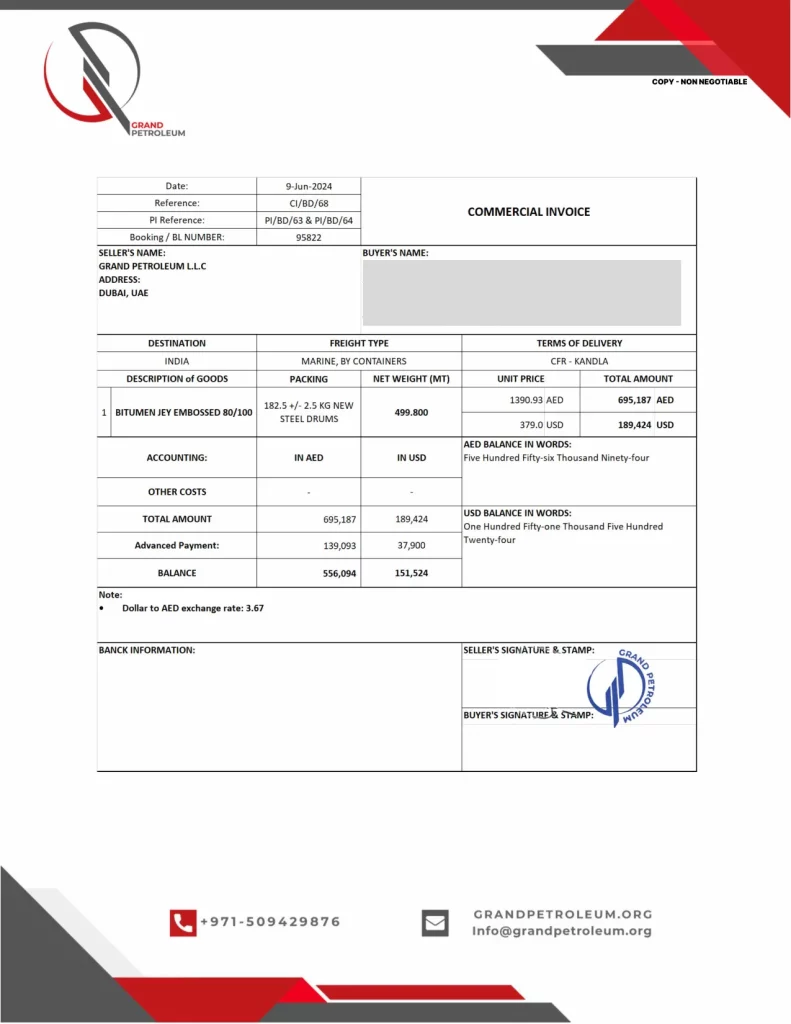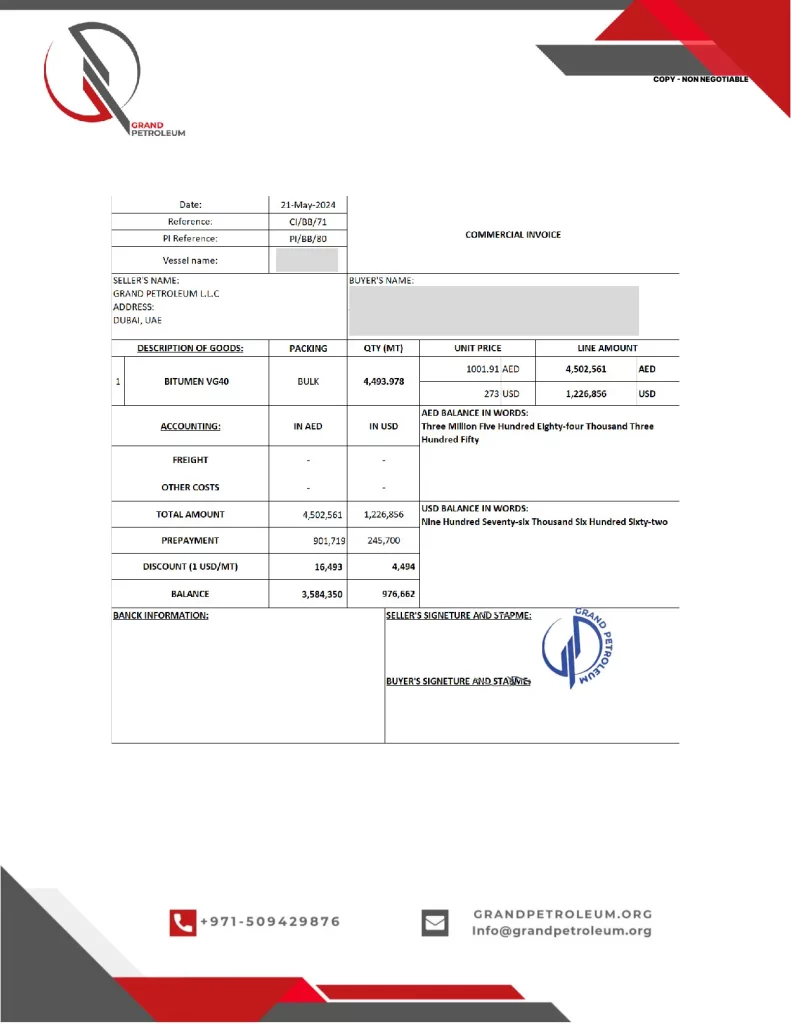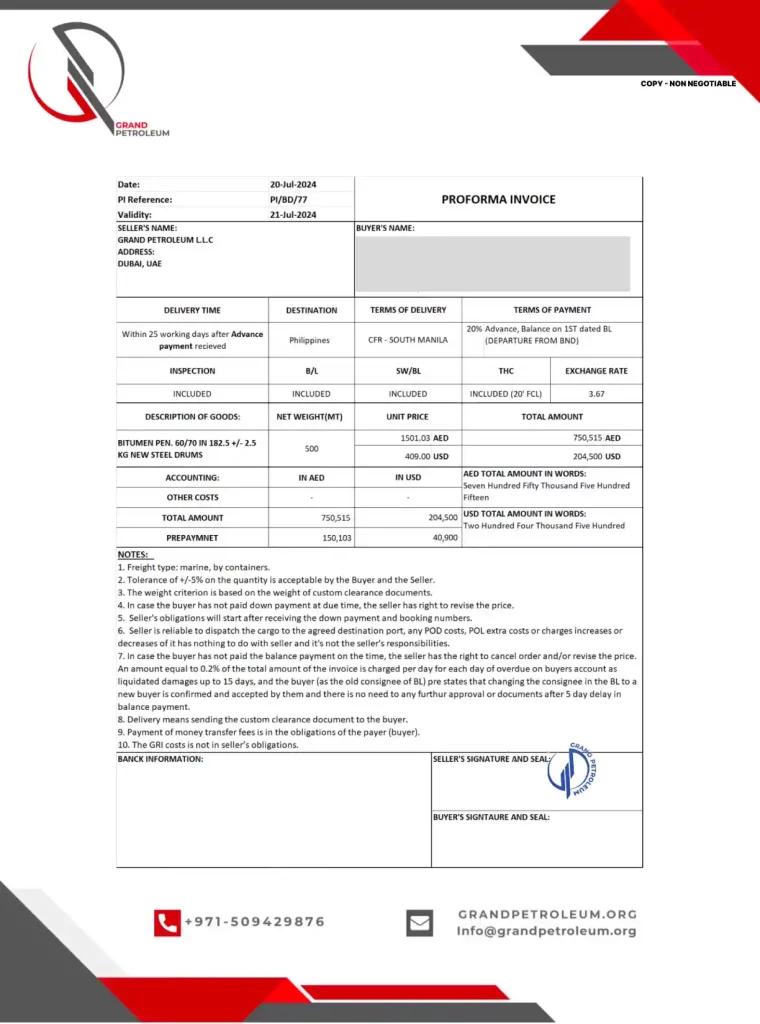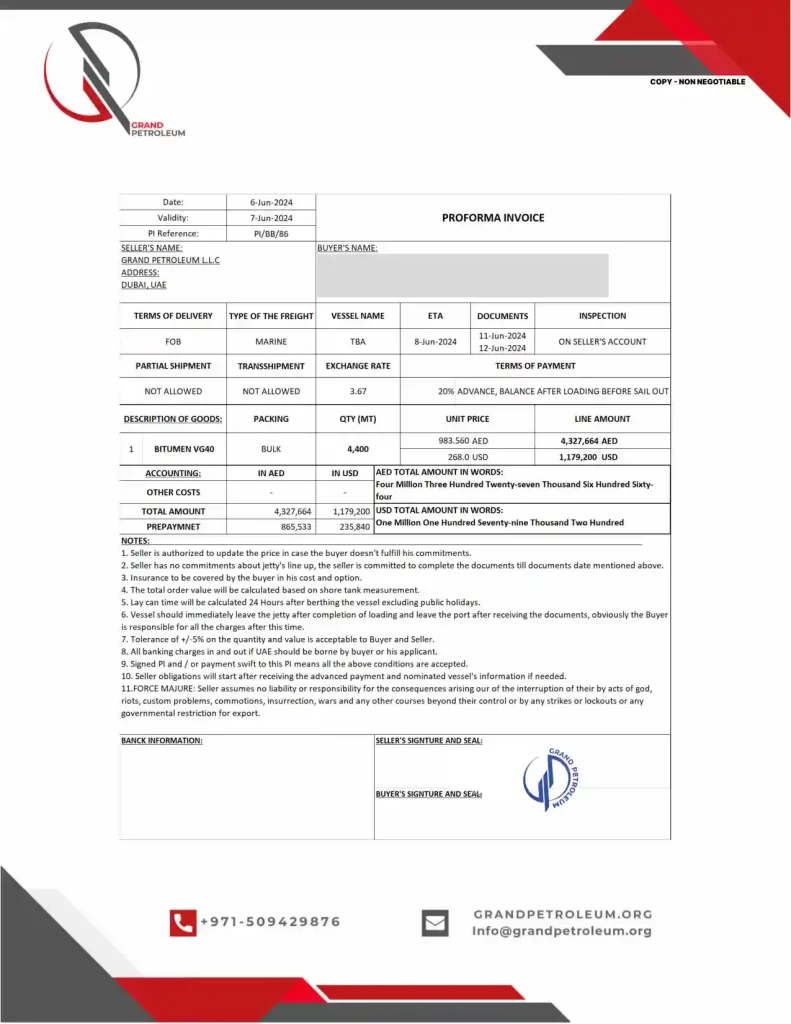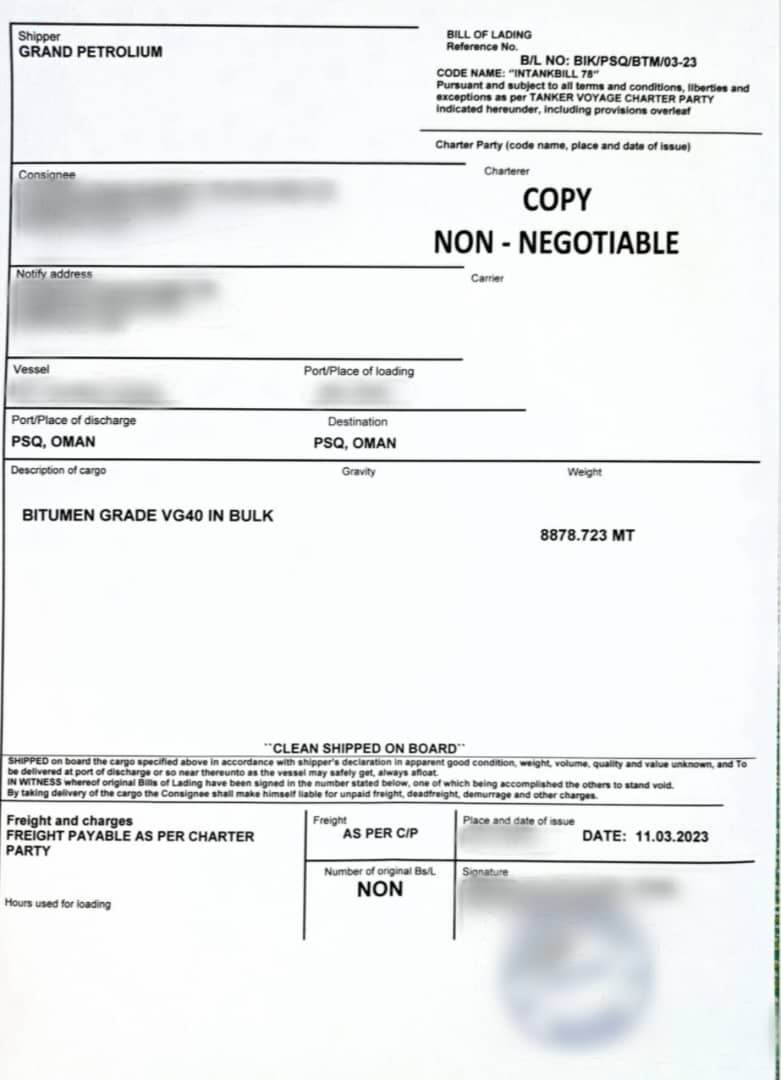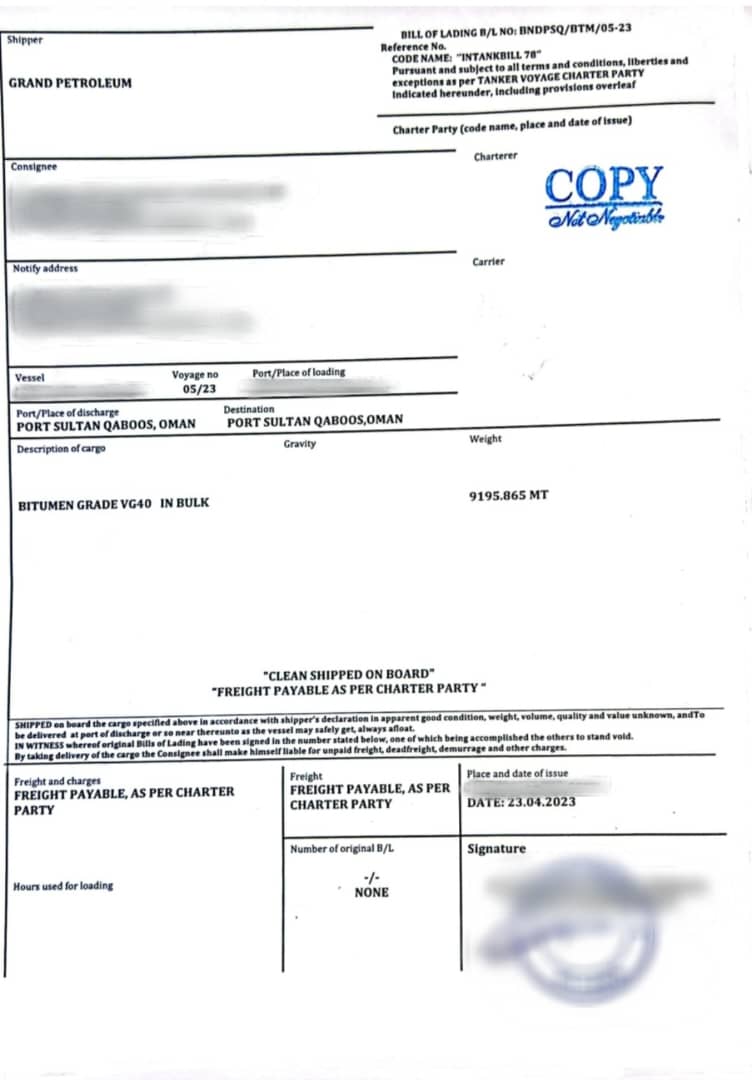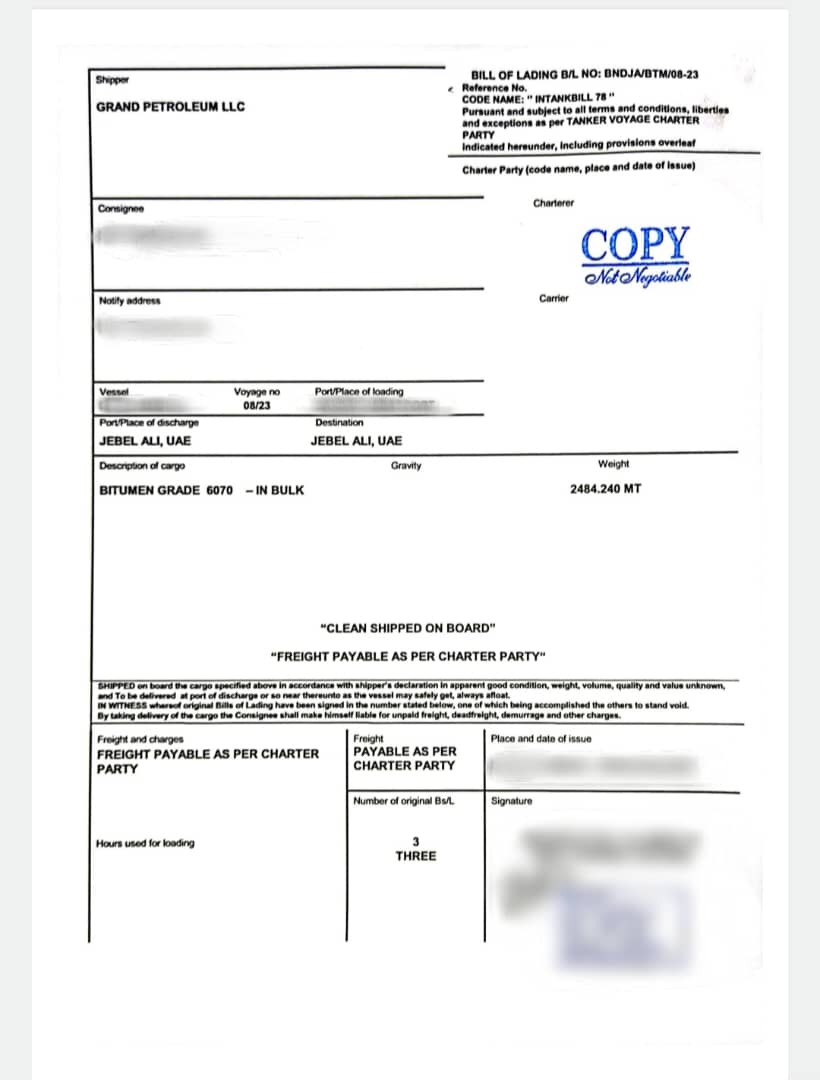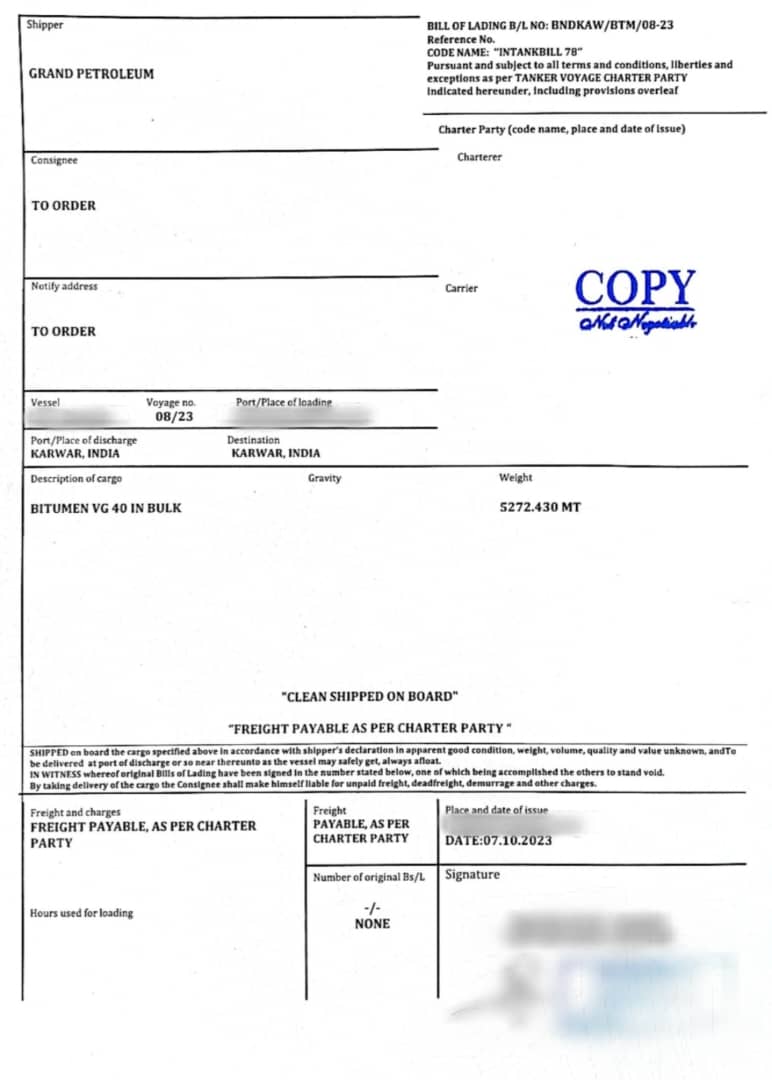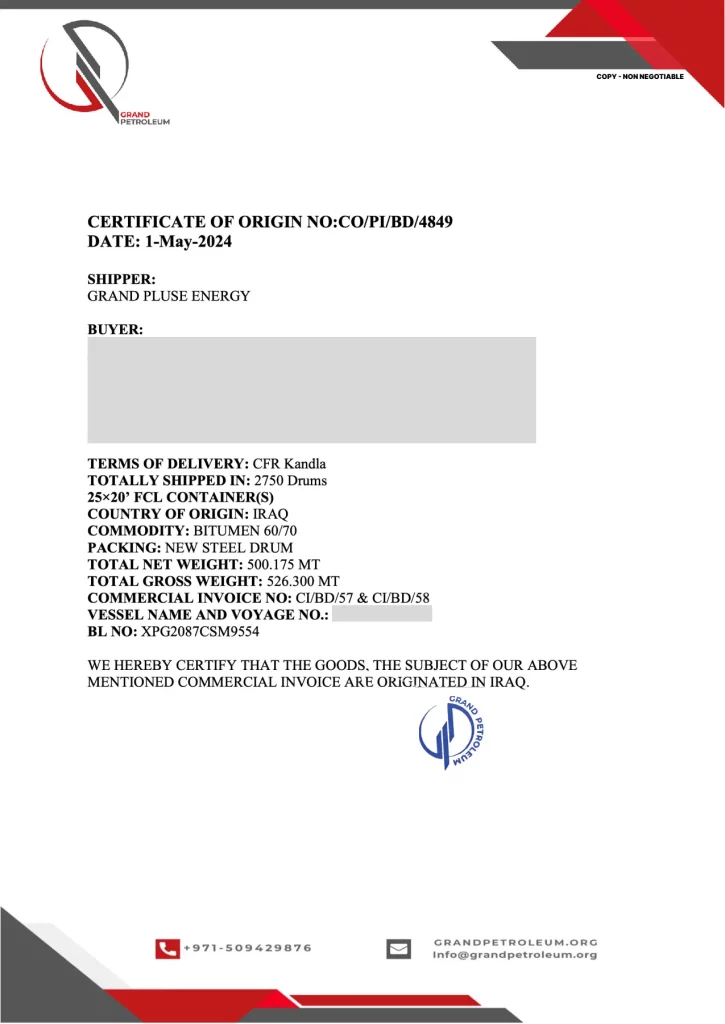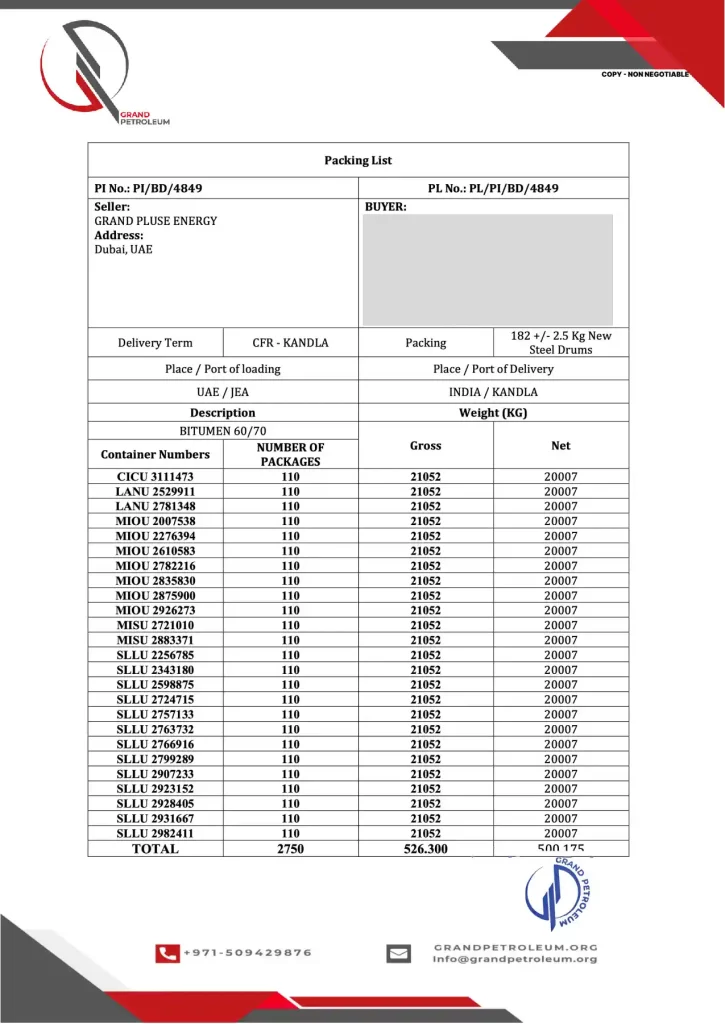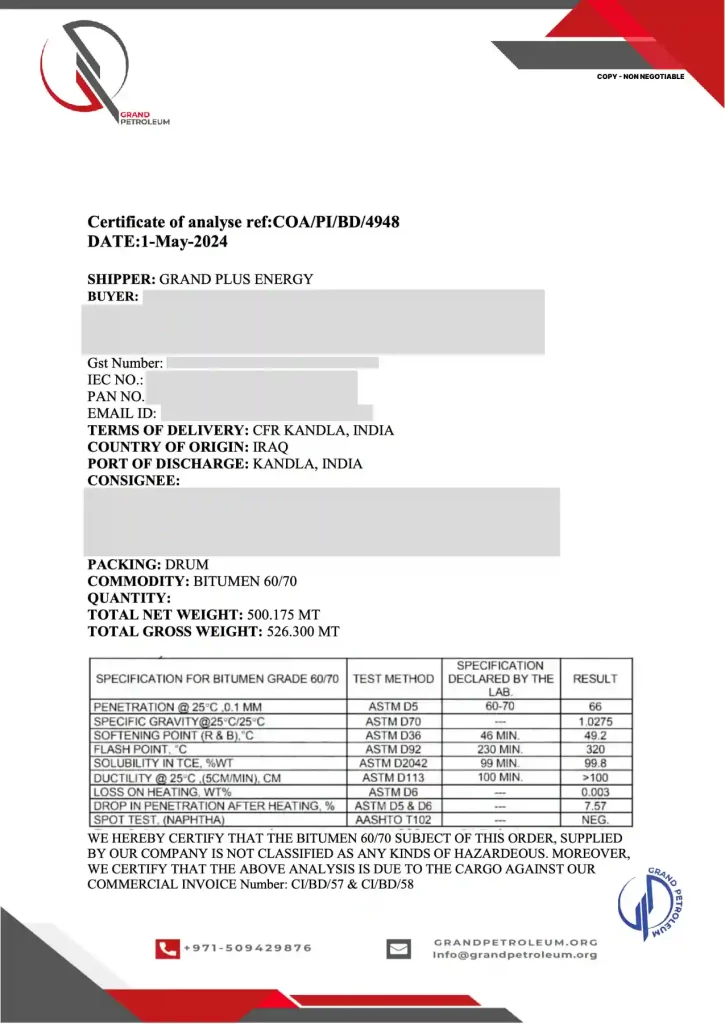Commercial Invoice
The commercial invoice shows all the details for export dealing, including the shipping terms. The commercial invoice is used when the international sale is made and also cargo is equipped to be shipped out.
The commercial invoice provides critical information and instructions to import brokers, buyers, freight forwarders and so forth and because of this, it is one of the primary documents.
Pro Forma Invoice
An invoice is an essential document that serves as a preliminary agreement between the exporter and buyer international trade part of the export process, it is prepared by the exporter before shipping the goods and serves as a commitment to the buyer of the exporter’s intent to send the goods.
It outlines the details as quantity, description of goods shipment terms. Additionally, a pro forma invoice is used as a quotation that buyers can use to compare prices and choose the best deal. Thus, a well-prepared pro forma invoice can be a smooth and trouble-free export transaction.
Shipping Order
A shipping order functions as a verification document, confirming the reservation of a shipment on a vessel. In the absence of a shipping order, carriers cannot load goods onto the ship, potentially causing shipment delays.
This document assists carriers in confirming the accuracy of the shipment’s particulars, including weight, volume, dimensions, and cargo type. It also provides information on where to collect an empty container, the vessel’s name and number, and the sailing time. Possessing this information beforehand allows carriers to effectively plan their schedules and manage their resources.
Bill of Lading (BL)
A bill of lading, commonly known as BL, is a document used by carriers to acknowledge receipt of goods for shipment in international trade. Utilized in international trade scenarios, a BL ensures that exporters receive payment while importers obtain their merchandise. This essential document plays a crucial role in the transportation of goods across borders.
Cerificate of Origin (CO)
A Certificate of Origin (CO) is a document that indicates which country the goods were manufactured in. It is prepared by the manufacturer and is certified by a Chamber of Commerce or a government entity. The purpose of CO is to identify the country of origin of the goods.
Packing List
A packing list is a document that provides information about the goods being packed and how they are numbered, including their weight, height, and dimensions. Essentially, it is a comprehensive list of all the items that are being shipped.
Inspection
Inspection in export documents refers to the process of examining and verifying the quality, quantity, and condition of goods before they are shipped internationally. This process is crucial for ensuring that the products being exported meet the required standards and specifications agreed upon between the buyer and the seller.
It is important for customers to understand that the responsibility of inspecting a product may not always fall on the supplier. While the supplier typically carries out inspections, there are certain circumstances where this may not be the case. For example, if a buyer declines an inspection, it is no longer the supplier’s responsibility.
Certificate of Analysis (COA)
A Certificate of Analysis (CoA) in export documents is an official document provided by a third-party laboratory or an authorized entity that attests to the quality, purity, and composition of a specific product. It is commonly used in international trade to ensure that the exported goods meet the required standards and specifications set by the importing country.
The CoA typically includes detailed information about the product, such as its batch number, manufacturing date, expiration date, test results, and compliance with relevant regulations or standards.
This certificate is essential for customs clearance and helps to build trust between the exporter and the importer, ensuring that the product meets the desired quality and safety requirements.
House Bill of Lading (HBL)
A House Bill of Lading (HBL) is a document issued by a freight forwarder or a Non-Vessel Operating Common Carrier (NVOCC) to acknowledge the receipt of goods that are being shipped.
It serves as a contract between the shipper and the forwarder or NVOCC, detailing the terms and conditions for the transportation of goods from the point of origin to the final destination.
The HBL contains information such as the description of cargo, consignor, consignee, and the shipping route. It is used as a reference for tracking shipments, facilitating customs clearance, and ensuring the proper handling of goods throughout the transportation process.
Original Bill of Lading (OBL)
An Original Bill of Lading (OBL) is a crucial document in international trade, used as a contract between the shipper and the carrier for the transportation of goods. It serves three primary functions: as a receipt for the goods shipped, as evidence of the contractual agreement for carriage, and as a document of title that grants its holder the right to claim the goods upon arrival at the destination port.
The OBL is typically issued in multiple original copies, with each copy having equal legal validity. The consignee or their agent must present at least one original copy to the carrier to take possession of the goods upon arrival.
Switch Bill of Lading (SBL)
A Switch Bill of Lading (SBL) is a type of bill of lading issued by the carrier or their agent to replace the original bill of lading. This document is often used in international trade to protect the identity of the buyer or seller, or to facilitate the transfer of goods between different parties.
The SBL contains all the necessary details about the shipment, including the description of the goods, the name of the shipper and consignee, and the terms of carriage.
However, the SBL omits certain information from the original bill of lading, such as the name of the actual supplier or the original buyer, to maintain confidentiality in the transaction.

